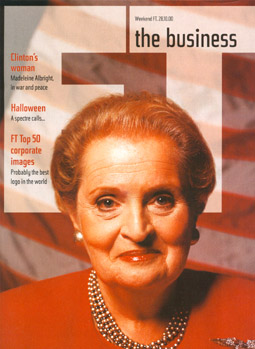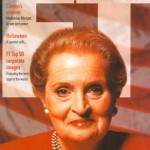Albright’s final bow
Madeleine Albright is almost shouting. She can’t hear me any more, she says. The noise on her aircraft has, indeed, become more deafening; but she also seems to be deliberately avoiding my question, and with good reason. This very moment is probably her happiest as secretary of state because of “the most important thing that has happened” during her nearly four-year tenure.
She has just received news about the Belgrade revolution and the ousting of Yugoslav president Slobodan Milosevic, and here I am, asking how she feels about having to leave office in three months. We’ve just spent a 30-hour day, having saved six hours by flying east-west from Egypt to Washington, and she says that’s exactly what she intends to continue doing for the rest of her term — “working every minute and extending the days”…


